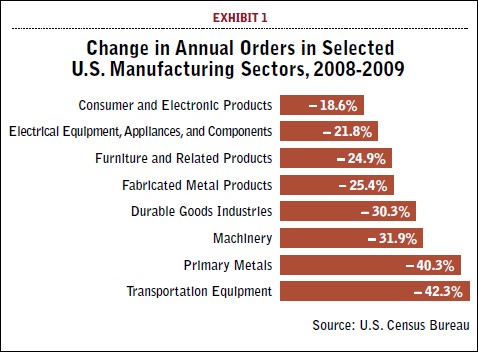5 Lessons From The Recession
Post on: 2 Апрель, 2015 No Comment

The bear market of 2008 was a game-changer for many investors. Prior to 2008, a market decline of staggering proportions was a philosophical idea. The Great Depression was a distant event that few people alive today were even around to experience it — and most them were so young when it occurred that it had little or no impact on their personal investment portfolios. (Remember, the 401(k) wasn’t even introduced until 1978, so even the Great Depression did little to derail the retirement dreams of the average investor.) Now that we’ve lived through a stock market decline in 2008-2009 that not only wiped out a decade’s worth of growth but also changed the face of Wall Street forever, what have we learned? Here we look at the top lessons.(For more, see What Caused The Great Depression? and other lessons in finance from 5 Lessons Monopoly Teaches Us About Finance And Investing )
1. Risk Matters
Clearly, the amount of risk taken in one’s investment portfolio will capture a significantly greater degree of attention in the years ahead. The decline of 2008 taught us that once-in-a-lifetime events can occur. We’ve also learned that diversification means more than just stocks and bonds. The simultaneous decline of stocks, bonds, housing and commodities is a stark reminder that there are no sure bets, and that a cash cushion could save the day when times get tough. The blind pursuit of profit with no thought to the downside is a strategy that failed spectacularly.
Moving forward, investors should learn to be leery. Protecting what you’ve got is just as important as trying to get more. Keeping one eye on risk and the other on growth is a lesson worth remembering.
We put a lot of trust in experts, including stock analysts, economists, fund managers, CEOs. accounting firms, industry regulators, government and a host of other smart people. They all let us down. A great many of them lied to us, intentionally misleading us in the name of greed and personal profit. Even index fund providers let us down, charging us a fee for the privilege of losing 38% of our money.
While the collapse of Long-Term Capital Management in the late 1990s demonstrated that genius does fail, the lesson was seen by all but felt by few. The crash of 2008 was the complete reverse. Few saw it coming, but most felt it arrive. If we’ve learned anything from the experience, it should be that blind trust is a bad idea and that even experts can’t predict the market. (To learn more, read Massive Hedge Fund Failures .)














